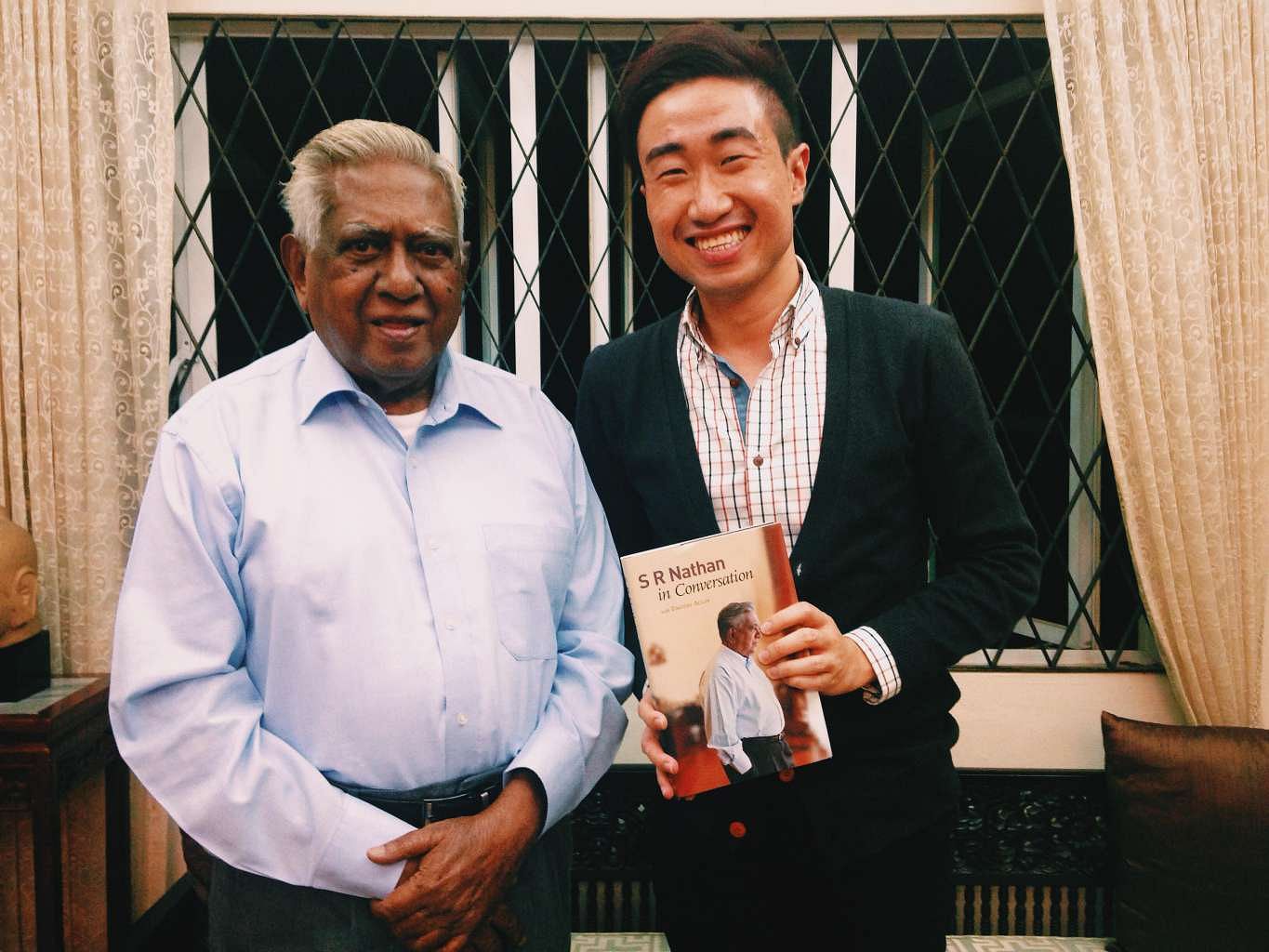A boy who saw larger-than-life President grows up to meet down-to-earth S R Nathan
Sign up now: Get ST's newsletters delivered to your inbox
Follow topic:
When Mr S R Nathan became President in 1999, I was an awkward kid on the cusp of teenagehood, ignorant of current affairs and blissfully unaware of the challenges he had to overcome.
Neither did I know what the President represented in the greater scheme of things.
Indeed I was one of many - as I have come to realise from conversations with my friends and reading online tributes - who saw the President and his wife as larger-than-life figures whose portraits graced assembly halls in schools.
It was Mr and Mrs Nathan who cast a watchful eye over my formative years as my peers and I sang the National Anthem and recited the National Pledge, as well as over our many accomplishments and, certainly, youthful indiscretions.
Which was why in January last year, when I met Mr Nathan for the first of three interviews I would come to have with him over 14 months, I was instantly struck by his down-to-earth manner.
I was a rookie reporter on the political beat, and he had graciously opened his Ceylon Road home to me and my colleagues for an interview for a feature series with newsmakers to talk about topical issues.

Straits Times journalist Walter Sim with former President S R Nathan on Jan 28, 2015, after an interview at his Ceylon Road home. The chat had taken place shortly after the launch of his last book S R Nathan In Conversation.
PHOTO: WALTER SIM
It lasted an illuminating 75 minutes during which he spoke, with what seemed like a mixture of reminiscence and pride, of having beaten the odds despite his humble beginnings.
From winning the hand of Mrs Nathan "against parental objections" to being given challenges "which you never knew whether you had the capacity (to succeed in)", he appeared confident that most obstacles could be overcome with tenacity and the right attitude.
He thrived on it.
"Every time you go into the deep end of the pool and come out of it, there's a satisfaction," he said during the interview, in what would be my biggest takeaway from the session. It was a reminder to hunker down and carry on when the going gets tough.
We shared a meal after the interview - Mr Nathan had mee goreng and orange squash prepared for me and my colleagues.
The chat took place shortly after the launch of his last book S R Nathan In Conversation.
Mr Nathan died on Monday, August 22, at age 92.
This year I met him twice, in January and March, to discuss a slated revamp of the elected presidency which he was a part of, and the legacy of late founding prime minister Lee Kuan Yew for an article to mark the first anniversary of Mr Lee's death.
On both occasions, he invited me to chat with him at Singapore General Hospital, where he had been undergoing regular dialysis sessions.
It had felt like an intrusion to what might, for some, be a private moment. But he immediately put me at ease, cracking jokes while also stressing his ambition to keep his mind active even as his body becomes frail.
When I asked if he still occasionally took the walks at East Coast Park which used to be a daily routine, he said with a tinge of regret: "No. And I miss the opportunity to meet people". In his walks, he got to know some of the regulars so well that he would check on them should he not see them.
He was acutely aware of his humble beginnings, as well as the view among many Singaporeans that he was elected unopposed in two presidential elections.
Mr Nathan's varied career has spanned the labour movement, the newsroom, diplomacy and the highest office of the land. But he acknowledged that today's youth are, perhaps, quite unaware of the part he had played in Singapore's history.
"There are many things competing for their attention: soccer, entertainment, technology and so on," he said last year. "For the young, the past hasn't impacted them. They're off to tomorrow. They're not going to live their lives because of what happened in the past."
Though many see today's youth as members of a "strawberry generation" that cannot cope with hardship, he refused to pass any such judgment.
"I think if the test comes, they will be strong. It appears to be like that. But you cannot prove it until it happens, and I'm fairly confident they will develop their own capacity to deal with the problems of society in a different way."
Good night, Mr President. It is now up to us to prove you right.
Walter Sim, 29, is The Straits Times correspondent in Japan

